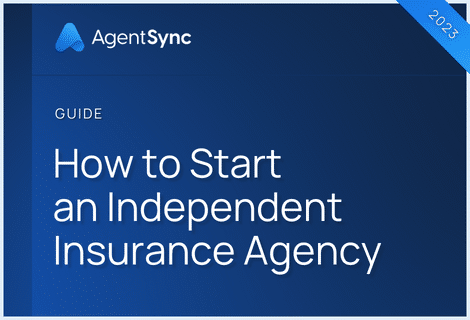

As a saleswoman in the insurance industry since 2001, I’ve often been one of very few women in the room, and sometimes even the only one. This is unfortunate because the industry provides a great living and so many opportunities that women can and should take advantage of. But, particularly when you’re talking about high-level positions in commercial lines insurance sales, I’m still one of the only women with a seat at the table
Women make up 51.7 percent of management and professional workers in the U.S. but only represent 33.5 percent of executives at the country’s largest insurers. According to Payscale’s 2024 Gender Pay Gap Report, insurance sales agents rank 8th in the top 20 jobs with the highest gender pay gap between men and women.
Marcel de bary gagnon
Having experienced my own success in the industry, I started working with the National Association for Advancement of Women in Insurance (NAAWI) in 2021 to help spread awareness of this excellent career path to other women. Even up until very recently, I thought the real issue was that women didn’t know about the endless opportunities that awaited them in the insurance industry. I thought all I needed to do was spread the word and we’d see a large uptick in gender parity.
As I began to think more deeply about this issue, I realized it’s not simply a matter of awareness. It’s everything from a person’s very nature to how they’re brought up, what they believe about themselves, and their ability to step into unfamiliar (and possibly unwelcoming) spaces, who they know (in terms of peers, mentors, and allies), and so much more.
Examining my own life, upbringing, and beliefs, I also realized my insurance career isn’t the only place I’ve been fighting for women’s right to exist and succeed. I quickly noticed the parallels with my daughter’s battle to be part of the sport of wrestling.
So, stick with me, if you will, on this journey through my own thoughts and philosophy on crossing the gender barrier in commercial lines insurance sales and the sport of wrestling. They have more in common than you think!
Nature plus nurture
Nature versus nurture is a common debate but, in my career, I have to attribute my success to the combination of both. Maybe my fate was sealed before I was even born. As the first-born grandchild in my family, I got my grandfather’s name. It didn’t matter that I was born a girl: I was going to be named after Marcel no matter what.
My grandfather and namesake was an Olympic diver, a presidentially appointed U.S. marshal, and, eventually, a gatekeeper at the Georgia Capitol. With his genetics in my nature, and his influence on my life from an early age, he helped me develop into a woman who was more than comfortable keeping up with the guys.
My grandfather took me everywhere with him. From men’s club meetings to breakfast with local law enforcement and government officials, if my grandfather had access to it, then I had access to it, even when the law was against me. For example, young women weren’t allowed to serve as Pages in the U.S House of Representatives until 1973. Georgia followed a similar rule at its state capitol, but, thanks to my grandfather’s position and my constant presence, I had access to people and functions of government that no other young women at the time did.
So, between my natural-born abilities, like being an ENTJ personality type and skilled at math and science, and my grandfather’s nurturing of my innate qualities, I was well-suited to walk right into a man’s world without qualms. It didn’t hurt that I had access to so many people and places that other women typically didn’t at the time.
Commercial lines sales is a man’s world
As a woman in my field, the world made assumptions about my role. As I often traveled alone, seated next to a random businessman, flight attendants would ask him “if his wife would like anything to drink” even though we were strangers!
I didn’t see these encounters as overtly sexist. Rather, in the 1990s and 2000s it wasn’t common to see women in careers that required weekly travel. So I didn’t let myself get bothered. Instead, I dug deeper into my work, ensuring I fired at 200 percent when I arrived at my meetings. That’s just my nature, which I only recently realized is a large contributing factor to my success in a world where I had to adapt – and often “play like a man” – if I wanted to win.
As my career in commercial lines of insurance progressed, I faced challenges and obstacles that men in my field didn’t. I also received recognition for milestones that men in my field didn’t, like being the first of my gender to reach the highest levels of professional achievement with a company. While most people accepted my position, I had to adjust the way I communicated, worked, and even how I thought in order to succeed with the few who didn’t know how to work with a woman in the C-suite.
I also had to take all kinds of steps to keep myself safe that my male counterparts never considered. Things like asking the hotel clerk not to say my hotel room number out loud when traveling. Or insisting that clients and prospects bring their spouses or assistants along to dinner meetings so I wouldn’t be dining alone with men, where the perception of “what I had to do to win that account” might come into play. I absolutely love what I do, and always have, so quitting was never an option.
Throughout the early years of my career, I certainly noticed that I didn’t have female peers in insurance sales. But I’m not sure I started really caring about that fact until I began having daughters. In our blended family, my husband and I have seven daughters between us. I felt the spark to fight for my daughters when I realized the world wasn’t built for them to be equal to men in every way. As a devout Catholic, it even irked me that my daughters couldn’t become priests if they wanted.
Through a combination of nature, nurture, exposure, and experience, I had unwittingly infiltrated a historically men’s-only space. It only dawned on me that not all women had the same ability to take whatever path they wanted as I began seeing what my daughters faced.
Fighting like a girl
My daughter, Sam, was born with my muscle structure, my innate love of physical activity, and my natural skills in math and science. None of these things are labeled as “feminine” in our culture, but she possessed them, nonetheless.
With good grades and good genes, Sam was a high school freshman athlete who excelled on the soccer and swim teams. Georgia had just become the seventh state to sanction girls’ wrestling, and the wrestling coach asked her to join. She wanted to, and I supported her wholeheartedly. I knew the challenges she’d likely face in breaking into a nearly all-male sport wouldn’t be too different from those I faced daily in my career. Determined to support and enable her, we moved forward into the newly co-ed world of high school wrestling.
At first, I went to almost every practice. Sitting squarely on a bench sandwiched between all the dads (who were, to my surprise, ardent supporters), I was prepared to face some pushback. What I wasn’t prepared for was the opposition of my fellow Catholic moms, members of my church community, who stood shoulder-to-shoulder with me through many personal difficulties and in the professional fight against gender inequality at work.
Women I considered friends badmouthed my daughter at wrestling matches, and even became physically violent toward girls who beat their sons on the mat. Involving the police at a kids’ sporting event wasn’t a pretty business. Off the mat, Sam’s wrestling coach, Geneva Gray, reports some horrific experiences in the early days. Match attendees would ask her whose wife she was and, on learning that she was the coach, they’d respond with, “Oh, I didn’t know they hired women,” or, “It must be hard to find a husband with a career like that.” She was ignored, or outright insulted, by referees who called her a “little girl.” Even as a professional at the top of her own game, being a woman who was “too pretty to be a wrestler” made Geneva’s job a constant challenge.
Still, Sam persisted. The first two years she struggled to get matches; some boys refused to wrestle against girls, and not many other girls stuck it out on the team because of the physical and mental barriers.
I attribute Sam’s perseverance to her nature, to the never-quit environment we raised her in, because she loved the sport, and because Georgia’s (comparatively) early adoption of girls’ wrestling gave her this opportunity.
With wrestling, just like with insurance (or any male-dominated field, for that matter), success for women comes down to a complex mix of your nature, how you were nurtured, your personal exposure to the concept, and the access you’re given to participate.
Marcel De Bary Gagnon
Continuing changes in “the boys club”
Undoubtedly, times are changing for women in the good old boys’ club. But they can’t change without the hard work of women and men championing equal opportunities and access in traditionally male-dominated arenas.
The gender disparity isn’t just a “women’s issue” either. As Brené Brown says, patriarchy harms everyone, women and men alike. What we’re really battling are the norms, standards, and the status quo that create and reinforce a system where women, regardless of their inborn nature, lack exposure and access to opportunities. There’s nothing in a woman’s genetic makeup that prevents her from being a wildly successful commercial lines insurance producer, a star wrestler, or any other path she might want to pursue. What actually stands in her way are often the limiting attitudes and beliefs, both self-imposed and those reinforced by her environment.
When I started in a career within the insurance and financial industries that worked on a 100 percent commission basis, it was a formula for a field dominated by white men. There are dozens of reasons this could be the case, and very few of them are because men don’t want to see women succeed. The reason I’m talking about nature, nurture, exposure, and access is because I believe each of these elements is vital to the transformation of all career fields, sports, and other endeavors into truly “equal opportunity” areas.
My career in insurance sales gave me a great living that allowed me to support my family through my whole journey from single-mom through married mom-with-seven. And I’ve been gratified with a fulfilling career in which I know I’ve helped people and organizations reach their goals.
So, how can we make insurance more welcoming? In this respect, it’s not merely nature and nurture, but exposure and access, as well.
Exposure: I was born with the aptitude for insurance sales, but it’s not something I knew of as an option my entire life. I was highly analytical in school and studied finance, but it wasn’t until my finance-professional mentor and friend told me I belonged in sales and showed me the way that I discovered this world of commercial lines sales. Once I started, I never looked back. Even with the obstacles of being a woman in commercial lines sales, selling insurance feels as natural to me as breathing.
Access: My friend and former colleague Josephine Bottitta is the most impressive and successful producer (of any gender) that I’ve ever worked with. But she’ll be the first to admit that she “still doesn’t love selling insurance.” Rather, it’s the opportunity to forge relationships and help people and organizations that she thrives on. Sales might not be in Josephine’s nature the way it’s in mine, but she still found an immensely successful and fulfilling career in insurance sales because she had access to the path.
Similarly, Sam was a natural born athlete. But without being in the right place at the right time, she might never have even discovered the sport she was born to play. Hopefully, you can see how nature and nurture have to combine with opportunities and access to create successful people in whatever realm they’re working (or playing).
Just telling women that insurance is a viable career option isn’t enough. We all have to create opportunities for exposure and access to help nurture the next generation of insurance professionals.
This Women’s History Month, let’s also take a moment to focus on our future. Whether you’re a parent, a teacher, a coach, a mentor, a manager, or anything else, you have more power than you realize. One of my favorite philosophies is that we can all influence anyone within a 3-foot radius. As we do, the ripple effect our influence has on the world is immense. As you go about your day, take a moment to think about the forces of nature and nurture that shaped you, along with the experiences, exposure, and access you had (or didn’t have) to the people and activities you’re passionate about.

